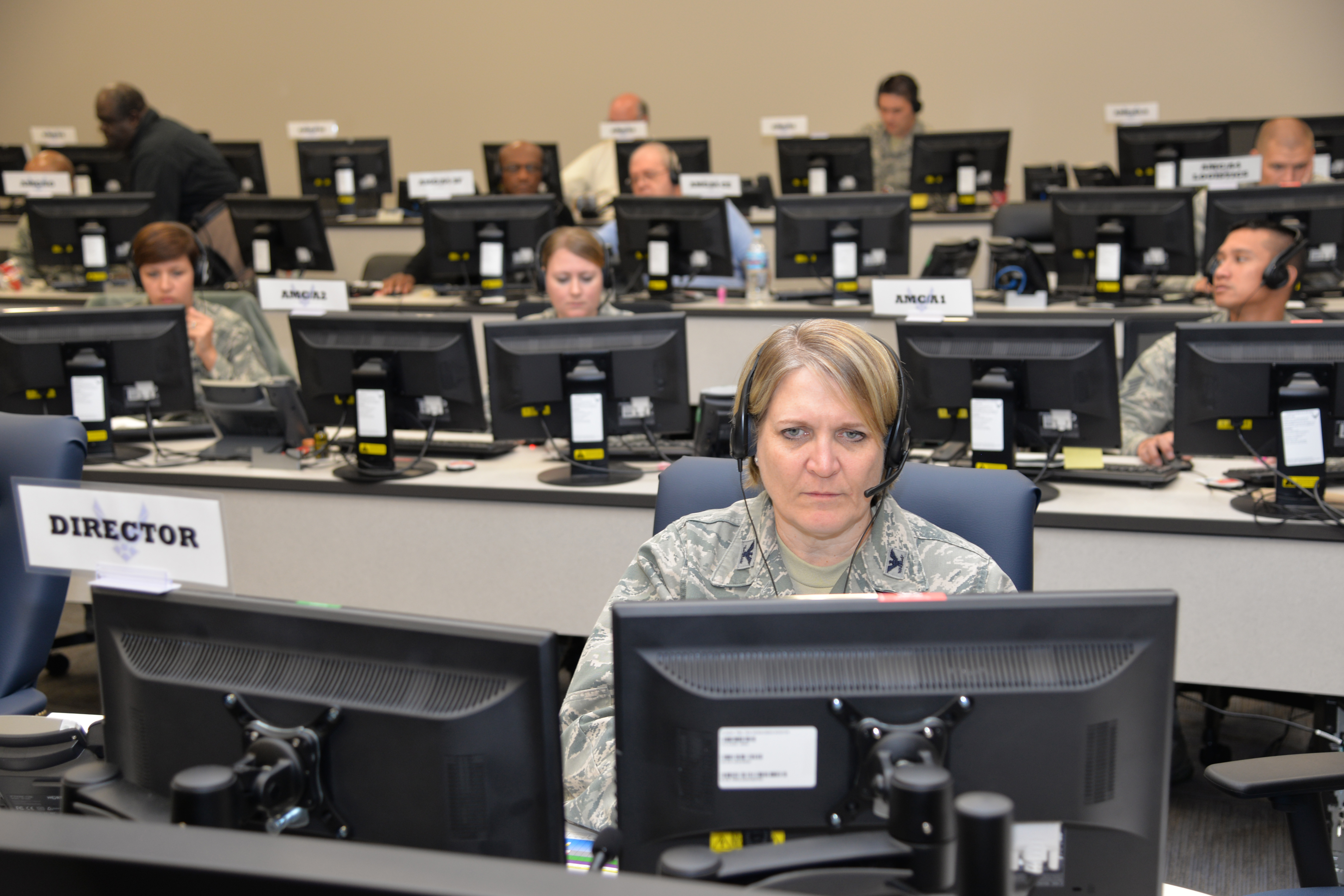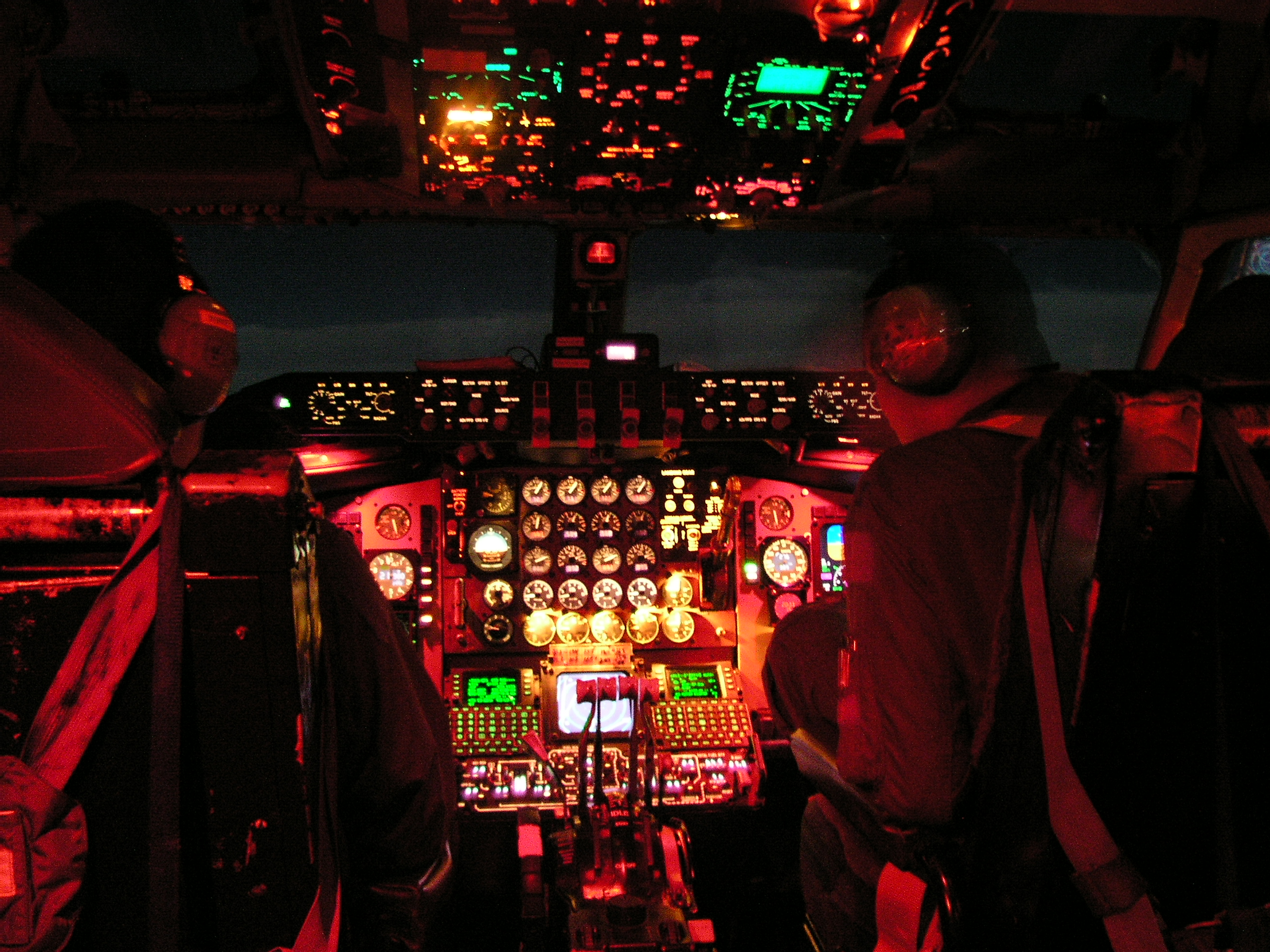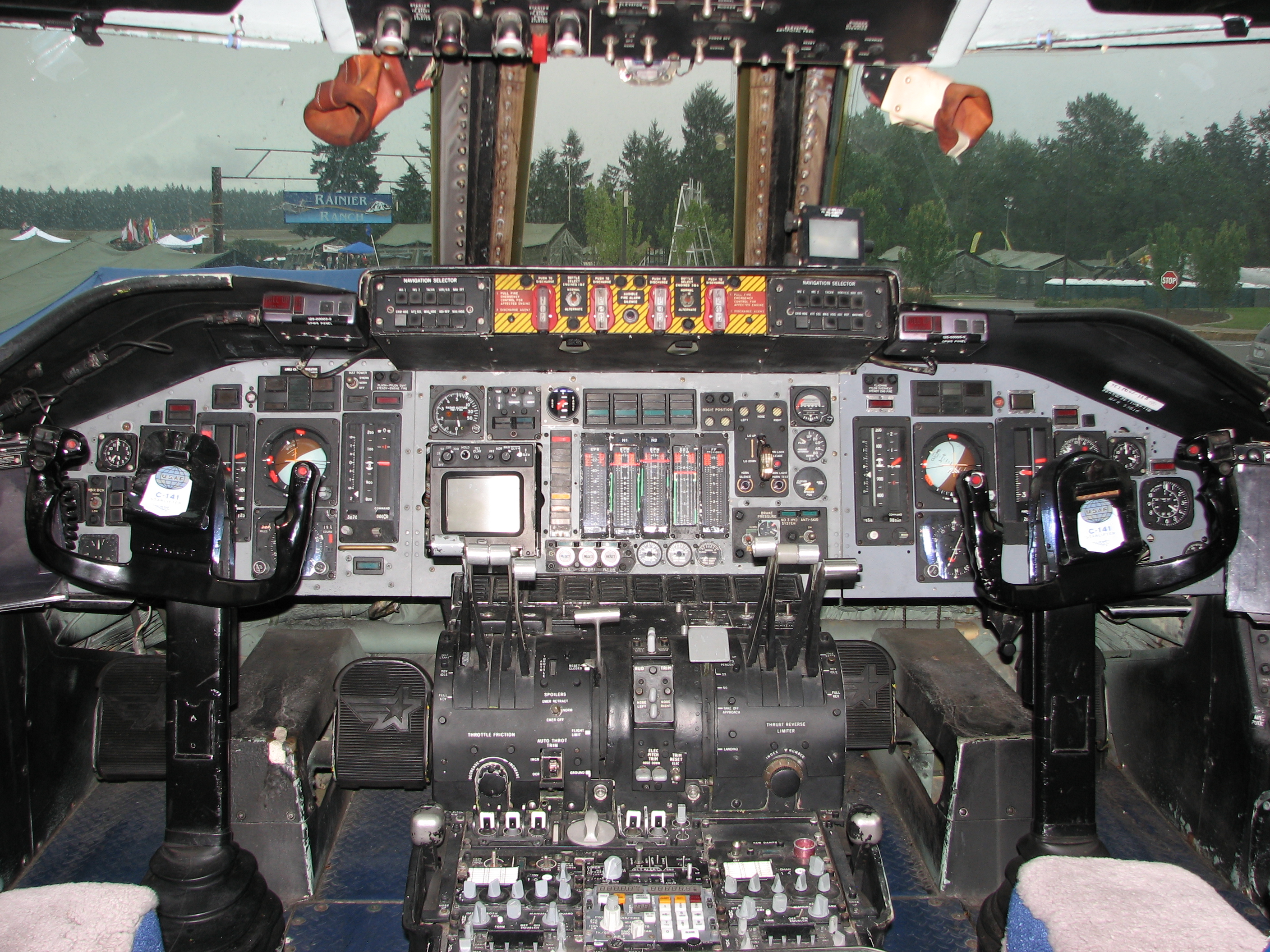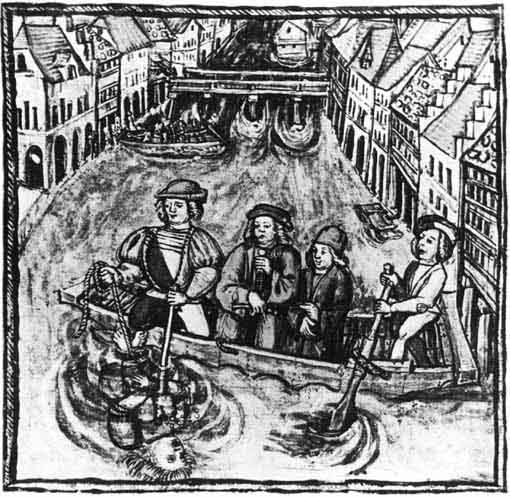I believe just about any organization with more than two people eventually morphs into a bureaucracy and there are survival tools at your disposal. I think the best movie about this is a war movie: Movies: Catch-22, which is more about bureaucracy than war. I also think that your finest Leadership skills are needed in a bureaucracy. But I also believe each bureaucracy is unique and you need to be on your toes.
— James Albright

Updated:
2015-03-18
In 1996 I had finished a tour as a squadron commander and was sent to lead a branch of budget officers at Air Mobility Command Headquarters at Scott Air Force Base, Illinois. It was one of those staff tours designed to get you promoted, provided you survived. I was in an office of "fast burners," lieutenant colonels going someplace. Theoretically, those who worked for us were also fast burners. I wasn't so sure. It was a huge bureaucracy designed to feed the beast. And the beast dined on people.

1
Day one
My orders said to report on Monday at 0700 so there I was. It was my first time in the building, and it was massive. While certainly not in the same league as the Pentagon, it was a large headquarters. My job title was "Chief, Aircraft Plans and Programs Branch," but I knew I was little more than the head of a group of accountants who paid for all the aircraft owned by the Air Mobility Command. My new boss, Colonel Grant Mitchell, was the "Chief, Plans and Programs Division." He was in charge of my branch and two others, one dealing with bases and the other with people. I stood outside Colonel Grant Mitchell's locked office, wondering what to do.
The entire third floor appeared to be wall to wall cubicles, walls about five feet tall artificially dividing the large room into several smaller rooms. It was an illusion, of course. The outer walls, the ones with the windows, were lined with real rooms with real doors. In the case of Colonel Mitchell, the office was locked and there was nowhere to sit and wait. I wandered to the nearest cubicles and found one with my name already in place. I had a cubicle with a little privacy, in that it appeared to be meant for one person. It had a single desk with a computer on it, a small work table, and two chairs. Just outside was a greater expanse of eight other desks in a larger collective space. The various desks had name plates with titles, such as "C-141 PEM," which stood for Program Element Monitor. I guess I had found my home. So I sat down and stared into the cold computer's blank display.
"You must be James," a voice said from the entryway to my new home. I looked up to see a tall, tanned, and muscular lieutenant colonel extend a hand, which I shook.
"I must be," I said.
"I'm Marty Ostendorf," he said. "I am the division deputy. The office doesn't really come to life until 0800 when the boss shows up. We have our Monday staff meetings at 0900."
"I see," I said. "I'm an early riser. Any problems with me showing up at 0700?"
"Not unless you want to make the rest of us look bad," he said. "No, just kidding. Most of the guys show up between seven and eight. Let's talk."
Ostendorf pulled the extra chair from the table and sat down. He explained that the Plans and Programs Division was the rock star division of the headquarters. "All three of you branch chiefs and I are former flying squadron commanders. The boss was a group commander. Everyone in our positions in the past have been promoted, no exceptions." I knew as much from my research. Contrary to what the troops in the field thought, the epicenter of any Air Force headquarters was not in operations, it was in the budget.
"What about our people?" I asked. "I hear their promotion rate is no better than at the bases."
"Ah yeah," he said. "That's something we have to work on." He stood for a moment, looked at the cubicles to his right and to the boss's locked office to his left and sat down again. "One more thing, James. You were not Colonel Grant's first choice for your position. He had someone from his last base already on orders when the Pentagon said you had the job. He knows you are politically connected but he's still sore about it."
"I'm not so sure about any political connections," I said. "But thanks for the intel. I'll be careful."
As we talked I could see and hear the rest of the office come to life. Most of the incoming would politely walk by my cubicle but another lieutenant colonel walked right into our space and extended a hand. "I'm Cary Nielson, I share a wall with you."
I shook his hand and introduced myself.
"Everyone knows who you are, James," he said. "You're famous. Besides, you have the glamour job, dealing with aircraft. I handle bases."
There was a knock at the side wall of my cubicle. A fourth lieutenant colonel peered in with a broad smile. "Welcome to AMC, James. I'm David Hanson. No time to chat, the boss wants to see all of us, chop, chop."
I followed my three peers into the boss's office. Colonel Mitchell sat at his desk, holding a folder with the classic "TOP SECRET" coversheet. He rose and handed a copy to his three branch chiefs, including me. "No time for intros, Colonel Albright. We have a five percent cut drill due at 1200 hours. Everyone knows what to do, let's get to it."
2
Deputy Dog (A's Hire A's)
The primary purpose of a bureaucracy is to perpetuate the life of the bureaucracy. The mission of the organization is secondary. That holds true in the military as well as in civilian life. The best proof of that, I think, is the size of the headquarters staff versus the overall organization. The USAF was a very big organization as the Vietnam War came to an end. Since then, the Air Force is less than half its size at its peak. It has half the people, half the number of bases, and much less than half the airplanes. And yet most of the headquarters staffs are the same size. There are even more general officers.
The best way for a headquarters staff to prevent getting smaller is to get bigger. That means you need more and more people to do less and less work. That's how I found myself running a branch of eight officers needing an assistant, a deputy.
Day one at the new office was dictated from the Pentagon. All services were to cut their budgets by five percent. So the Air Force decided each part of the Air Force, including Air Mobility, would cut by 5 percent. And so on, and so on. A budget cut drill is a staple of military life at any headquarters level. I imagine civilian headquarters must have something along the same lines. The crux of the matter is that the people paying the bills believe the people spending the money are padding their expenses. They simply wave a wand and say, "spend X percent less," and presto it happens. I had learned the secrets at the Pentagon, where I also knew how it worked at lower levels of the bureaucracy. Headquarters AMC would churn out recommendations of what to cut and then at the Pentagon we would cut that if we wanted to, something else if we didn't. It was Kabuki Theater except the lower level players didn't realize they really had very little to say in the end.
My gut instinct was to cut airplanes from just one program, just to show it could be done. But I knew the rest of the staff would react in horror and the idea would never survive. So in the end we spread the pain, we sent our recommendations to the Pentagon, and they made their recommendations, and the Secretary of Defense did something completely different. It was a useful exercise for me however. I got to know each of the officers in my branch and learned to see how they reacted under stress.
My branch was like a microcosm of every organization I had ever been a part of. Of the eight, three were majors, five were captains. A third were proactive, smart, and could be counted on to give good answers to hard questions. They seemed to act as if they had a personal stake in the game. The next third seemed to be staff snakes, the type who had found their niche and were able to competently execute their chores with a minimum of fuss. But they remained detached because it was nothing more than a game to them. The last third were there to please. No task was too big, no request too unreasonable. But they had no ideas of their own and rarely performed to the level of the first two groups. None of this surprised me. What surprised me was the distribution of these personality types by rank and aircraft type.
The largest program was the KC-135 tanker, managed by Major Harry Huddleston. But the program was on autopilot since most of its problems had already been addressed. The aircraft had a reputation for killing its crews because of underpowered engines and antiquated avionics. The Air Force had fully funded new engines and avionics and Harry had little to do but approve spending orders. He was the perfect man for the job. He displayed zero initiative but that's all the job required. Another large program was the C-141 airlifter. The airplane had once been the most reliable in the inventory. But Air Mobility Command stopped funding spare parts, thinking the airplane's success would hinder the chance of getting more C-17s to replace it. So the airplane was falling apart at the seams. The program manager, Major George Lester, was also a perfect match. He spent hours on the phone with various vendors and maintenance facilities, railing at any mistakes and "getting in faces," as he put it.
Another surprise was just how little work was really needed from me. I showed up every day at 0700, signed what needed to be signed and read whatever I could get my hands on to learn about the airplanes I had no experience with. Members of my staff would come in for advice and direction regularly and I did what I could. But, for the most part, my time was spent editing whatever they had written. I took very long lunches at the gym and very rarely stayed past the official end of the day, 1700. It was becoming the least interesting job of my Air Force career.
"I know we are all working very hard," Colonel Mitchell said at the first Monday staff meeting of my second month. "I also know there is some grumbling in the trenches about how we did on the last promotion board to lieutenant colonel. James, that was the month before you showed up. We went six for twelve on the lieutenant colonel board."
"About the Air Force average," I said. "You would think a headquarters staff could do better."
"Indeed," he said. "I think I can fix the promotion potential for our majors and help with the workload at the same time. I would like each branch to select a deputy branch chief."
"That's a great idea, boss," said David Hanson. "Adding a job title to their promotion folders will really make them stand out! And I could use the help. I have the perfect candidate in mind."
I kept my silence, as did Cary Nielson. Colonel Mitchell looked at Cary. "We'll make it work," Cary said. "After the last round of base closures, Major Alsop has time on his hands. He'll be my deputy."
"Great," Colonel Mitchell said. "What about you, Eddie?"
"I'm not so sure, sir," I said. "The only major I have who is up to the task also has the busiest program." Mitchell looked at me with a raised eyebrow, begging the question. "Lester," I continued. "Major Lester would do a good job, but the C-141 world requires a lot of attention."
"Lester's a bit of a troublemaker," Colonel Mitchell said. "He seems to have a complaint for everything."
"Most of his complaints are valid," I said.
"What about Major Huddleston," Colonel Mitchell asked. "He seems like a fine officer."
"He's eager enough and has the time," I said. "But he is all about the tanker force. I don't think he has a clue about airlift, he doesn't have the intellectual curiosity about anything outside his current scope, and thinks inside the box at all times."
"You're being too hard on the lad," Colonel Mitchell said. "Maybe he can grow into the position."
"Perhaps," I said. "But he isn't my choice."
"What do you say, Marty?" Colonel Mitchell asked.
"I think Huddleston would be okay," Ostendorf said. "But in the end James has to work with him so it should be James's choice."
"Done," Colonel Mitchell said. "Each of you branch chiefs get on my schedule with your deputies so I can personally congratulate them. Okay, let's get to work."
Major George Lester seemed to appreciate his selection but was worried about the extra time needed. After a few weeks he settled into a routine that kept him plugged into the workings of the other officer's aircraft while keeping a closer eye on his own. I knew he had little to offer me when it came to my primary task of exercising quality control of our written paperwork. But he gave the rest of the team another avenue to discuss problems and that freed me up considerably. I started to appreciate having a deputy. It appeared, however, I was alone.
"I'm not surprised," Marty Ostendorf said during one of our morning pre-work sessions. He picked a different branch chief's office to start each morning and the topic for the week seemed to be our deputy dogs. "I am a psychology major and I could have made a pretty good psych paper out of this entire episode."
"We are all crazy," I said. "I could have told you that a month ago."
"Yeah, me too," he said. "But more specifically, what kinds of deputies each of you branch chiefs selected would make a good psych study. Have you ever heard the saying, 'As hire As, Bs hire Cs'?"
"I have," I said. "It is a good theory but I wonder if it really holds up."
"It does," he said, "and you guys proved it." He stood to look over the cubicle walls. I shared a wall with Cary Nielson, the Bases Branch Chief. "Cary is the pure definition of a 'B' leader. He just wants to chug along, do his job, and avoid boat rocking. He never comes up with new ideas because he doesn't want to be responsible for them. He has a couple of hot rocket action officers chomping at the bit with new ideas and he stomps those out immediately. He could have picked one of those guys for a deputy but didn't. He picked the biggest slug major he had."
"I noticed that," I said. "But I thought that was more along the lines of awarding seniority."
"That's a kind way to look at it," Marty said. "Kind, but wrong. Have you noticed anything new at the manpower branch?"
"No," I said. "David Hanson always has a smile on his face, never complains, always says yes. He did that before he got a deputy and he still does that."
"Exactly," Marty said. "He agreed to having a deputy, even though he didn't want one."
"Why do you say that?" I asked. "He was the first to sign up to the program."
"He's the first to sign up to anything Mitchell suggests," Marty said. "We have a word for that."
"Sycophant," I guessed.
"You got it," Marty said. "Cary's a 'B' and David is a 'C' and we have psychology in action."
"You're leaving me out," I said.
"You are an enigma," Marty said. "I had you pegged for an 'A' the day we met. You certainly picked an 'A' for a subordinate."
"But I'm still a mystery," I said.
"That you are," Marty said. "You have all the traits of an anarchist, James. I'm not sure if you are the ideal branch chief or just someone wanting to take the whole system down when you get a chance."
"I bear considerable watching," I said. Marty smiled, got up, and winked.
3
Work expands
It is never enough for a bureaucracy to survive, it must grow to achieve its leaders their ultimate goal: power. This increase in power is the only way bureaucratic leaders can achieve a self-assured measure of self worth. Their metric is the size of the bureaucracy. The best way to grow a bureaucracy is to convince others (and yourself) that you have too much work for the people you currently have. You need more.
After three months on the job I was learning to anticipate the ebb and flow of staff work, the budget cycle for our aircraft programs, and the officer evaluation forms and promotion recommendations for the eight officers who worked for me. Try as I might, I could not predict Colonel Mitchell's ideas from left field. I may have been the cause of one of those.
"The two-star passes along his thanks for all our hard work on that last cut drill," he said at a Monday morning staff meeting. "He made the point that this is the kind of performance we have come to expect from Air Mobility Command's finest. That's the reason we do so well at every promotion board. So please pass that along to your people."
"Here, here!" said David Hanson while clapping. Nielson and Ostendorf joined in. I did not.
"Something to say, James?" Colonel Mitchell asked.
"I agree about a good job on the cut drill, sir," I said. "But I don't understand why everyone is always touting our promotion rate."
"Every branch chief in this division has made full colonel for the history of this division," Ostendorf said. "Our odds are good."
"Sure," I said. "But the rate to lieutenant colonel and major is worse than it is out in the field. Why would any sane pilot or navigator give up a cockpit seat to come here and increase the odds of a pass over?"
"James, you can't let the results of one board sour your view," Colonel Mitchell said. "Let's keep that kind of negativity to a minimum. But there is something I need you to look into. Why is half the C-141 fleet grounded?"
"I don't know, sir," I said. "But I'll find out."
"Spare parts," Major George Lester said as I pointed at the command's C-141 Mission Capable rate charts. "More specifically, spare attitude indicators."
"Attitude indicators have grounded half the fleet?" I asked.
"Just about," he answered. "They don't make the ones used on the C-141 any longer so when one breaks, we have to repair them. And we can't repair them good as new, so they keep breaking."
"How often?" I asked.
"They have a mean time between failure of 23 hours," he answered.
"So you are lucky to get three or four flights out of an airplane once you've fixed it," I said.
"If you are lucky," he said. "The cockpit has two attitude indicators and they both have to work."
"Why can't you buy a different indicator?" I asked. "You just have to build the brackets, wiring harnesses, and do the testing. But once you are done you have a new source of brand new indicators."
"We put out the requirement three years ago," he said. "All we got back were proposals to redo the entire cockpit in glass at a cost of half a million dollars per bird. The proposal is already signed and approved, but nobody wants to fund it."
"Let me guess," I said. "Why install a brand new cockpit in an airplane that is supposed to retire in five years."
"Exactly," he said.
"What are you spending on repairing the bad indicators?" I asked. "And can you put a price tag of how much it is costing to get the cargo delivered on alternate lift?"
"I don't know, sir," he said. "Let me do some calling."
In a day George had the answers which added up to a solution, but not a solution the budgeting system would accept. He seemed personally defeated and his mood was contagious. I had a plan, based on a miracle I once saw work at the Pentagon. But I gave the plan slim odds. I had to wait until the time was right. A week later I got my chance.
"I've been giving our discussion from last week a lot of thought," Colonel Mitchell said at our next meeting. "James, you were right. Our promotion rate to lieutenant colonel and major is worse than the field rate. That's part of the reason we instituted the deputy chief system. But that only helps one person per branch. We need something that shows just how hard our guys are working. That will give the promotion boards something to chew on!"
Marty Ostendorf handed out copies of what appeared to be a time card, listing the officer's name and branch on top, with a table below with start times, end times, elapsed times, and project name. I stifled a groan but it would have been muffled by David Hanson's reaction. "Yes!" he said. "This is a great idea, sir!"
"I think so," Colonel Mitchell said. "If we can put a metric on how much work each of our activities take, we can quantify just what it takes to keep our programs funded. That gives us another line on the promotion recommendation form."
My mind raced with ways to stop what looked to be a disastrous idea without openly confronting Colonel Mitchell in front of the group. But the words failed to materialize.
"Let's give it a try," Marty Ostendorf tried. "Why don't you three come up with a way to do that and we can compare them next week."
4
Shooting straight
"Say what you mean and mean what you say." That is something you should never do in a bureaucracy if you want to survive. But even those who play the game know having a straight shooter available can be a tremendous asset. You often see "players" that rocket up a bureaucracy keep a secret straight shooter available so as to remain plugged into the real world. But if you are that straight shooter, be warned that you are being used and will be misused if it ever becomes advantageous to the player.
I didn't mention the time card to any of my officers until they started asking me about what they saw on the desks of their counterparts in the other branches. I simply filled out one card per officer and wrote "8 hours per day, five days per week, program management" and left it at that. Colonel Mitchell opened the floor at the next meeting to review our proposals. David Hanson began with handouts and a PowerPoint slide show. The handouts included time cards for each member of his staff. I studied the cards and laughed.
"Something funny?" Hanson asked.
"One of your guys logged an hour for cleaning his desk," I said, thinking the joke and the punchline were all in one.
"So?" Hanson asked. Colonel Mitchell and the others looked at me, inviting an answer but willing my silence. I squelched the former and offered the latter.
Cary Nielson's effort was about the same, without the PowerPoint presentation. I didn't have any handouts other than the eight time cards I had filled out for my officers. I handed them to Colonel Mitchell.
"Sometimes I don't get your sense of humor, Eddie," he said, handing the time cards to Ostendorf.
"Well let me ask my fellow branch chiefs then," I said. "How many hours did this add to the workload of each of your officers?"
"An hour," Hanson offered. "Two or three hours tops. That isn't so bad."
"Now tell me how you are going to use this data to improve things?" I asked. "It was an easy week, I'll give you that. But for most weeks the time cards are going to show your guys put in eight hour days. Now compare that to what aircrews are doing out there, some of them in combat. I was too embarrassed to hand these out to any of my guys."
"I think you better get used to it," Colonel Mitchell said. "I'm going to take Hanson's presentation to the two-star. I think everyone at the headquarters will be doing these before the month is out."
The room fell silent to help accentuate my rebuke. Mercifully, Colonel Mitchell turned the page on his notebook. "What about the C-141 problem?"
"It is all about attitude indicators that nobody makes and a mean time between failure of less than 30 hours," I said. I explained the problem of flying sixties' technology in the nineties, as well as the proposal to replace the cockpit's old fashioned analog gauges with digital glass.
"The airplane is history in five years," Marty Ostendorf said, "you know that."
"We've added up the annual cost of repair and added to that the cost of replacement airlift," I said. "The new cockpit pays for itself in one year and give us an estimated meantime between failure that exceeds the remaining lifetime of the airplane. We are money ahead in just a year."
"Color of money," everyone said at once. And that was true. Defense dollars were appropriated with different life spans. Operation and Maintenance (O&M) was red; funding was available for just a year and if unspent in that year, disappeared. Procurement funding, on the other hand, was green; it lasted for three years. You couldn't buy a new cockpit with O&M funding and you couldn't by a repaired attitude indicator with procurement funding. Cut and dried.
"All you need is for the Secretary of Defense to inform Congress that he is doing it and why," I said.
"Is that all?" Colonel Mitchell asked, laughing.
"I saw the Army do it once when I was at the Pentagon," I said. "Doing this saves us money, tides the C-141 over until its retirement, and supports the war fighter. You will have Army and Navy support."
"Let's get serious, James," Colonel Mitchell said.
5
Trial by ordeal
Nonconformists in a bureaucracy can be subjected to something akin to the mid evil practice of "Trial by Ordeal." Water trials, for example, involved immersing an accused person in water to prove their innocence by being accepted by the water by sinking rather than floating. There was also trial by fire. The message is clear, just being accused of not playing by the rules of the bureaucracy is enough to convict you.
Here's an example: Monty Python's Holy Grail.
The following Monday I showed up at 0700, as usual, setting aside a few moments for my coffee and jelly donut ritual. In front of my monitor was a Post-It note. "Lt Col Albright, see MGen Willem 0800."
Major General Willem was the Director of Air Mobility Command's Plans and Programs Division. He was Colonel Mitchell's direct boss and reported directly to the four-star, the commander of AMC and the Commander in Chief (CINC) of United States Transportation Command (USTRANSCOM). The CINC, pronounced "Sink" reported directly to the Secretary of Defense. I showed up at his office and was greeted warmly by his secretary. "He's looking forward to meeting you."
"James," he said as I entered, offering a hand and preventing my planned salute. "The CINC has had his eye on you since the day you showed up and that means I had my eye on you. I got to tell you, you got our attention last week."
"That can be good or bad," I said.
"Good," he said. "All good. First off, Colonel Mitchell's time card idea is going nowhere. After he unveiled it I asked him if all of his branch chiefs supported it. He said two of three did. I asked who number three was. I wasn't surprised. Then I think he was hoping to save face by telling us your color of money idea with the C-141. The CINC thought that was a great idea and has already called SECDEF."
"That's the best news I've had in a while," I said. "The C-141 news, that is."
"It gets better," General Willem said. "The CINC wants you to come up to be the deputy at his legislative liaison office. Effective immediately. Congratulations."
I returned to my office, logged out of the computer, and picked up my hat. I stopped by Colonel Mitchell's office to say goodbye. "I heard, James. Well done. Please keep in touch."
6
Postscript
I think there are lessons to be had here, but I'm not sure which. I recommend you look at Leadership for more lessons about leadership and perhaps Crew Resource Management for more about followership.
So how did I end up personally recommended to this staff position? That is complicated but you can read about that here: Flight Lessons 4: Leadership & Command.
In that book you won't read about my time at Air Mobility Command because it was so brief. I spent the next several years at USTRANSCOM in legislative liaison. So what about my time at Headquarters AMC? All of the events related here really happened, but not all of them by the characters portrayed. The silly time card idea came from another section in our directorate and most of our guys made fun of it. (Including Colonel Mitchell.) It took months, not days, to kill it. The C-141 glass cockpit really happened but, in this case, it took months and not weeks to make it happen. I guess that might be the most pertinent lesson: things happen slowly in a bureaucracy.
So let's pull out some lessons on how to be a good member of a bureaucracy:
- Realize your superior is someone else's subordinate and that dumb idea he is pushing may have been pushed onto him.
- Realize that you represent your superior to your subordinates and it does you no good to bad mouth the boss behind his back; it makes you both look bad.
- Realize that you have an obligation to let your boss know he is about to make a mistake.
- Realize that sometimes the boss's boss deserves your loyalty too; you have to make a decision on who deserves that more.
- Realize that loyalty goes two ways, you need to be loyal to your troops as well as to your boss.
- Finally, remember that your integrity trumps all else. (See: Rule #9 - Integrity versus Loyalty.)




